Apple unveils three Macs with Apple silicon chips, promising big power, battery boosts
Apple has unveiled a groundbreaking change to its Mac range that will change how fans around the world use their laptops forever.
It is the biggest change to happen to Apple computers in years, it will begin next week, and it will come as MacBooks are in greater demand than ever.
Apple has unveiled an overhaul for three of its top-selling computers this morning — the MacBook Air, MacBook Pro, and Mac Mini — by adding the company’s own computer chip for the first time.
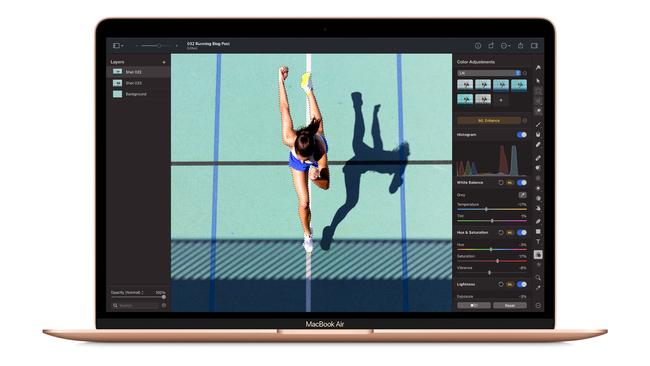
And the change will begin next Tuesday when the devices arrive in stores, promising to deliver significant performance and battery boosts across all three machines, and coming as part of an aggressive push from Apple to take business away from Windows-based machines.
Apple’s big reveal follows a preview of its chips at the Worldwide Developers Conference this year, where chief executive Tim Cook confirmed long-time rumours that the company was developing its own processors.
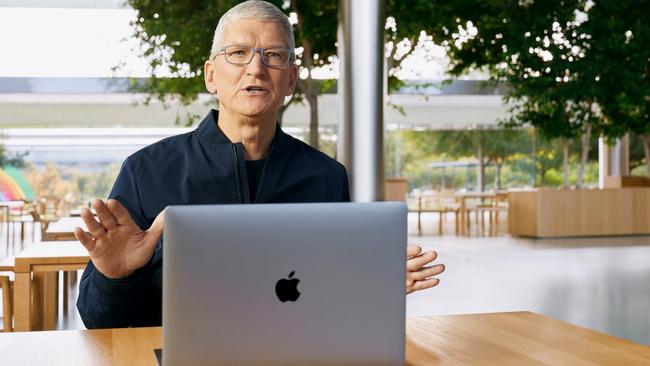
Mr Cook, speaking from Apple’s Cupertino headquarters, said the first Macs to use the Apple M1 chip would be noticeably different from those released before them, even though they would outwardly look the same.
“The M1 chip is by far the most powerful chip that we have ever created,” Mr Cook said.
“It makes these Macs dramatically faster, provides all new capabilities with extraordinary battery life and enables the Mac to run more software than ever. This is exactly why we are transitioning to Apple Silicon.”
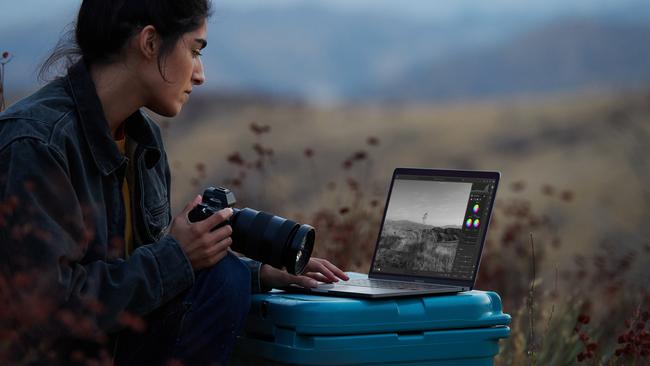
Apple’s MacBook Air was the first to receive a processing makeover during the event this morning, with hardware engineering vice-president John Ternus promising the refreshed device would deliver a battery life of up to 18 hours, its CPU would be up to 3.5 times as fast, and graphics would be boosted by up to five times.
The 13.3-inch machine will also add software improvements to its camera for clearer FaceTime calls, will feature a Touch ID fingerprint scanner and Magic Keyboard as before, and will cost between $1599 and $1949, with orders starting today.
“We’ve taken our most popular notebook and, with M1, given it more performance than 98 per cent of PC laptops sold in the last year, a huge increase in battery life and, at the same time, pulled out the fan,” Mr Ternus said. “That’s just nuts.”
Apple will also test its first chip inside an updated MacBook Pro laptop, with the new 13-inch computer also launched for pre-order today.
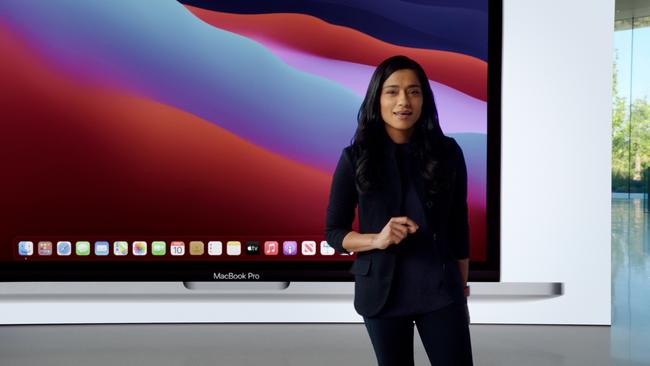
The more powerful machine promises a battery life of up to 20 hours for the first time — “the longest battery life ever in a Mac” — as well as a 2.8x boost in CPU, “studio-quality” microphones, and camera boost. Its price will range from $1999 to $3299.
Apple will also test its new chip inside the Mac Mini, in the computer’s first update in two years. The small desktop computer will cost between $1099 and $1699.
In its presentation, Apple compared the performance of each of its new computers to its PC equivalents, potentially setting up an interesting head-to-head battle in the computing market.
As usual, Apple will also launch a new operating system alongside the new machines, with MacOS Big Sur available as an update for all Macs from Thursday.
While only three Macs will receive its own chips this year, Apple plans to transition all of its notebook and desktop machines to Apple Silicon within two years.
The company has used Intel chips to power Mac computers since 2006, but Apple iPhones, iPads, and Watches already use its own ARM-based chips.
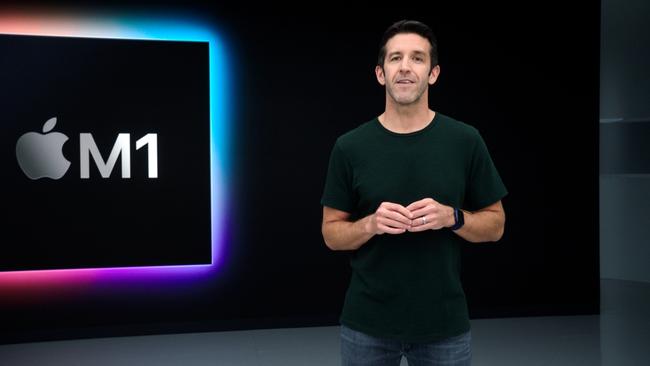
In addition to promised performance and power boosts, the change will allow MacBooks to run iPhone apps for the first time, which software senior vice-president Craig Federighi said would open a new world for users.
“You’ll have more games to play, more content to watch, and more apps for everything you want to do,” he said.
“All together, you get access to the biggest collection of apps ever for the Mac and it’s only going to get better as developers continue to build new apps for the M1.”
App developers will have to recode their creations to work on the new Apple Mac Mini and MacBooks, however, and there may be delays before some make the transition. Adobe, for example, is not expected to release Photoshop for computers using Apple’s new architecture until next year.
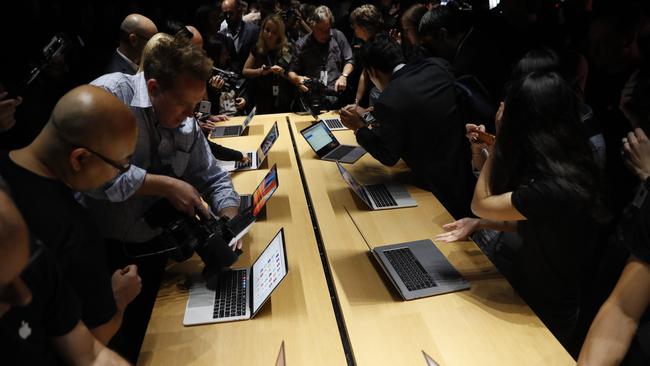
And the company may have timed its run well. Global computer shipments jumped by 14.6 per cent in the third quarter of the year, IDC reported, to more than 81.3 million laptops, desktops and workstation computers.
IDC mobile device trackers research manager Jitesh Ubrani said demand was approaching “record levels in some cases” but and would continue to rise next year.
“Had the market not been hampered by component shortages, notebook shipments would have soared even higher during the third quarter as market appetite was yet unsatiated,” he said.
Demand for technology during the coronavirus pandemic is similarly high in Australia, with a Deloitte survey of 2000 Australians in June and July finding 26 per cent of respondents had purchased a new digital device, with laptops, smartphones and TVs the most popular items.
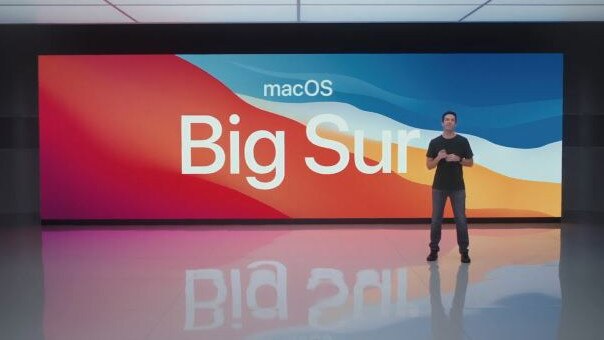
Nine per cent of those surveyed had bought a new laptop since the pandemic took hold in March, while six per cent bought a new tablet, and five per cent a new desktop computer.
“We may technically be in a recession but consumers appear to be spending on the devices that help them feel connected,” Deloitte national telecommunications lead Peter Corbett said.
Apple is currently the fifth biggest computer maker in Australia, according to Gartner, with 7.2 per cent of the market.
MORE NEWS
Apple’s biggest and smallest iPhones reviewed
